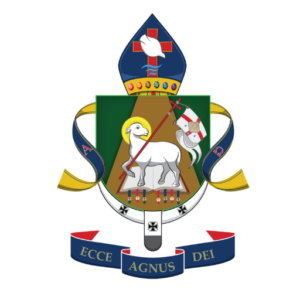We Have Hope Because of the Eucharist
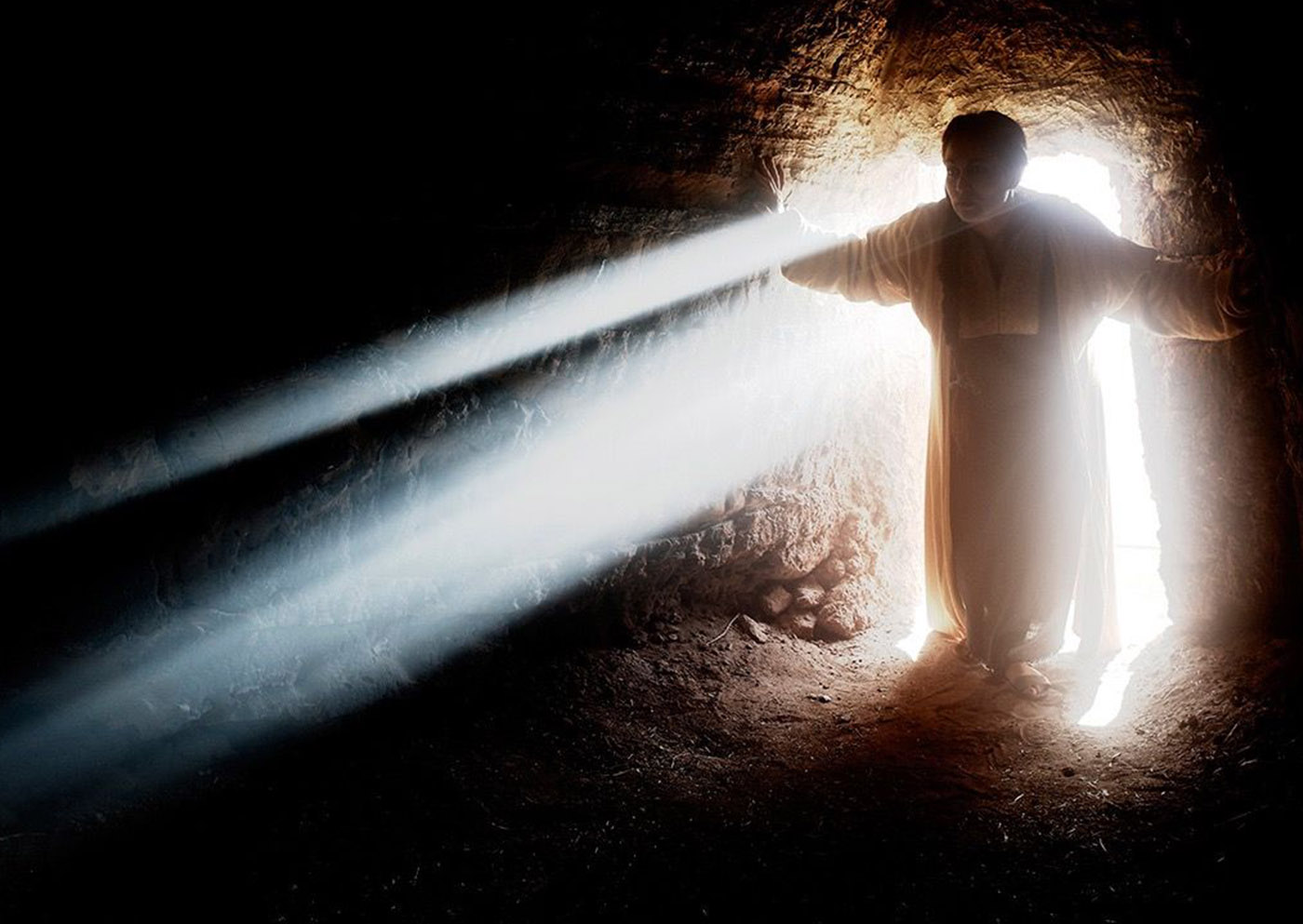
“We Have Hope Because of the Eucharist”
Archbishop Loren Thomas Hines
Second Sunday After Easter
April 30, 2017
Readings: Acts 2:14a, 36-47; Psalm 116
1 Peter 1:17-23
Luke 24:13-35
It’s probably a little difficult for us to understand how the breaking of the bread could identify Christ. Couldn’t anybody break bread? Is it uncommon for people to break bread? There’s something here that God wants us to understand. We are reminded every week of Christ’s work on our behalf in the breaking of the bread. It’s the responsibility of the Church to remind the people of what Christ had done on their behalf.
The two men on the road to Emmaus had deep in their hearts a desire for this man they saw as the Messiah to set Israel free, and now He was dead and their hope was gone. Christ was so concerned for these two men that He joined them so He could tell them that He was not dead and explain to them why hope is not lost. They didn’t recognize Him because they were blinded. What they saw were the natural things and what they saw with their eyes were so set within them that they couldn’t accept what couldn’t be seen. Christ had set them free but they didn’t see this because it wasn’t evident to them. Christ had conquered sin, death and the grave, but they didn’t see this because they were in great fear and anxiety. They were deeply sad and troubled as they were recounting what had happened. It was only when Christ sat at table with them and broke bread and blessed it that their eyes were opened. We are probably like these two men. We see our problems and difficulties and we ask why we are going through so much. We don’t see the evidence that would set us free; and so we are imprisoned by the things around us – higher (commodity) prices, persecutions, misunderstandings. This can destroy us and take away our hope, even our desire to live. We can’t really see the truth.
Several weeks ago, while working on the farm, I lost my footing and fell. I put my hand out to break my fall and it went to a plant called “lipa”, a “cruel, evil” plant. When I pulled my hand out it was so painful that I wished I could cut it off. My hand was in so much pain for about two days and anything I did to try to alleviate the pain only made it worse. I found out later that the plant, with all the pain that it can inflict, is medicinal. It’s best used for arthritis. The article I read said one of the problems that people can’t handle about the plant is the pain it gives on the surface, not realizing that the surface pain is producing something good that isn’t evident at that moment. The plant can even be made into a tea for its healing properties. In the same way, the pain we experience in our emotions prevent us from realizing that something good is happening. This is what the disciples were going through. We, too, are so focused on what we see and feel that we lose the value of the truth.
Remember the last supper when Christ and His disciples were celebrating the Passover a day early because He was going to be the Passover Lamb? When He took the bread, He said to them, “This bread is My body given for you”. God wants us to understand this. You can go back in history and see the references to bread. In the wilderness, Israel was given bread from heaven and it sustained them for forty years. We also know that Jesus broke the bread that fed 5 thousand from just a few loaves, giving us a picture of how a little bread can affect a multitude. What we see in these two instances are the natural – He fed the people – but God wants us to see that the “bread” that is to come will be far greater. But why bread? In that day and age, bread was the sustenance of life. The bread we have today doesn’t have as much nutrients as they did in those days. Their bread was thick and heavy because it was made of 100% grain and we probably would enjoy it. This bread would last; they could take it on their journeys. They used this bread and wine to sustain them for life. So Christ became that essence of life and He said to His disciples, “This bread is My body”. He wanted us to grasp the symbolism so that we would understand that what He went He had to go through had to be done in His body or flesh. Why the body? Go back to Genesis 3. It was Adam in the flesh who, in chapters 1 & 2 had been given authority over all the earth. He was to cultivate and keep it. He named all the animals; he had tremendous ability. But he committed treason by submitting to the devil in the eating of the fruit. From then on, the enemy became god of the world. God could have just destroyed the enemy but He is just. It was man who failed and it would have to be man who will redeem. It had to be flesh. This is why in John 1 we are told that “the Word became flesh and dwelt among us”. Flesh would redeem man because flesh betrayed God. Christ went to the cross as flesh. Scriptures tell us that at the time of His death, they took care of His body and made sure that it was preserved. They took it down from the cross. Joseph of Arimathea asked Pilate’s permission to take the body which they wrapped in linen with spices and took to the tomb. The body is preserved because it is the means by which man will be redeemed. This gives us back the hope because Christ isn’t dead. He is alive and He lives within us – “Christ in you, the hope of glory”. The hope is not lost. The two man going to Emmaus thought the hope is lost, but it wasn’t because Christ wasn’t dead. He appeared to the disciples in the upper room in the flesh. They were able to touch Him. This was the Christ who proclaims to us today that His body is the source of our redemption.
Why do we go through this every week? We make the proclamation that Christ is our Passover Lamb and He was sacrificed for us, and therefore we celebrate the feast. This is a declaration that we understand what He did and what it means and we now celebrate what He did for us by living this out. This is why Jesus said, “As oft as you do this….” He’s instructing us to partake of the Eucharist often to remind us of what He did for us. He set us free in His flesh; in the sacredness of His flesh. Many of us have been taught the flesh is evil, but created the flesh and He doesn’t create evil; only good. The flesh is clearly good enough that Christ could come in the flesh. The flesh was intended to be righteous from the very beginning. Ephesians 1 tells us that from the very beginning, we were created to be holy and blameless. God’s plan is for us to have this ability in the flesh – for our flesh to be a witness of what He has done for us because that makes God’s invisible work visible to the world. We’re the ambassadors of God. “….we ourselves groan within ourselves, waiting eagerly for our adoption as sons, the redemption of our body” (Romans 8:23). This body screams out to be redeemed: take away the pain, the suffering and anxiety so that I can be what I’m supposed to be – a witness of the greatness of God. We put the flesh down’ we don’t have much confidence in it. God has so much confidence in the flesh that He sent His Son to become flesh. It was that flesh that was going to the cross and redeem man from the curse because it was the flesh that betrayed God. There’s evidence of the sacredness in the flesh. “Therefore, since the children the children share in flesh and blood, He Himself likewise partook of the same, that through death He might render powerless him who had the power of death, that is, the devil, and might free those who through fear of death were subject to slavery all their lives” (Hebrews 2:14-15). It was through the flesh that He did this because it was the flesh that betrayed God. We need to be delivered from fear of this flesh. This flesh is scared. It’s the sacrament of the Eucharist that’s meant to bring it wholeness. The Eucharist is a reminder that flesh was broken for us so we could now live the new life without sin, fear and anxiety. In this flesh with Christ in us, the enemy has no right and no power to harm us if we understand what we have been given. This is why the Eucharist tells us to remember what He did because it set us free. We know that in our heads but not in our hearts. We have to get to the point where it’s so alive in us that it can take us through the fire. We can face the issues of life without anxiety because we know we’ve been delivered. We’re not there yet, so don’t put yourself down. This is why we take the Eucharist often – to be constantly reminded that we’ve been redeemed. This gives us the ability to stand firm in confidence. I’m not saying you won’t have a problem or suffer pain because the enemy will try to get your eyes off of the truth. He wants you consumed by your problems that you forget. The breaking of the bread is our life, hope and righteousness, and we come to this table to be reminded and not forget. We seem to forget easily because other things take our attention from what we’re supposed to do. This is why the Holy Eucharist is vital to us. We were delivered by the breaking of the bread. Our bodies now have within them evidence of the greatness of God so that like Christ, we can overcome anything that the enemy throws at us.
Remember last week when Christ said peace to the disciples in the upper room, then He said to His disciples, “As the Father has sent Me (to redeem the world, not to judge and condemn but to restore it to the Father), so I send you”. This is what we’re also commissioned to do in this flesh – to give our lives for others, to bring them hope – and not focus on our own wants. Christ gave His life for others and in losing His life, He gave life to the multitudes and that affects the whole world. This is now our responsibility. The breaking of the bread reminds us who we are – set free from the control of the enemy, back in our position of authority and dominion. We haven’t grasped this in our spirit yet, but when we allow the Holy Spirit to bring forth His life within us, the invisible will become visible. This is our commission – to give hope from the giver of life. Remember the lady by the well in Samaria. Jesus wanted to give her the water that will enable her not to thirst again. When the disciples came, they asked Him if He was hungry. He said, “My food is to do the will of My Father”. Christ’s fulfillment came from doing the will of God.
In the breaking of the bread, Jesus restored us with even greater ability because, as we read in Acts, the gift of the Holy Spirit strengthens us to be able to fulfill His commission to us. Jesus breathed on His disciples and they received the Holy Spirit. This is the gift God gives us to strengthen us so we can stand in the midst of a storm and the tragedies that come to us. We can say, “God is my strength. When I’m weak, He’s strong. When I’m confused, He’s my peace. When I’m failing, He’s my victory”. Whenever the bread is broken, there should be an excitement. That’s why we say, “Let’s celebrate (keep the feast)!” But when we celebrate in receiving the Eucharist, then go out and confess our problems, worries, and weaknesses, we violate the Eucharist and commit treason. It doesn’t matter what we’re facing. Greater is the love of God in us and not anything that the enemy can bring against us. When we say we’ll celebrate the feast, it means declaring through our lives that we won’t fail because Christ is in us. This is the power of the breaking of the bread. It isn’t just an acknowledgment that what we receive is Christ but an acknowledgment of what He did for us. It’s the hope we have in Him. It doesn’t mean we won’t have problems because the problems are there for a purpose – to bring glory to God. We have no right to complain because when we do, we violate what we say, “Let’s celebrate; let’s keep the feast”. We can celebrate because of the peace which comes from God.
This confronts us because we’re not living that way yet. We don’t see that the Eucharist set us free. We only do it because it’s what we’re taught we should do. Many people think it’s superstition, that if they take the Eucharist, things will be okay. Yes, they will be but only if we believe it by living it. “As a man thinketh in his heart (not his head), so is he.” The power is in the heart, where the hope is. This is what Easter is all about. He breathed on them and they received the Holy Spirit. He was the peace they needed to fulfill what the breaking of the bread was all about. He didn’t leave us alone; Christ set us free and we’re no longer subject to the god of this world. Because Jesus is now the God of this world, and to Him we bow our knees. “Every knee shall bow and every tongue confess that Jesus Christ is Lord.” This gives us hope. Jesus wanted the two men on the road to Emmaus that He was alive and He took away their sin, destroyed the enemy’s power and have His life to save them. In Him we have hope because of His love for us. Easter is a declaration of this hope and love. Great is our God! Listen to the liturgy when we go through the Holy Eucharist. It says exactly what I’m teaching you today. Our task is to give love – the love of God – because that’s where the power is.
Recent Sermons
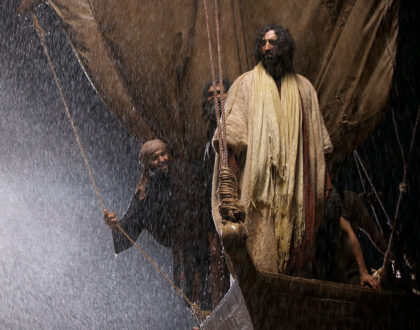
Jesus, Calmer Of Storms
June 23, 2024
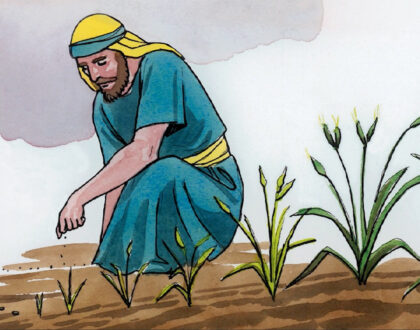
Harvest Time Stemming From The Smallest Seed
June 17, 2024
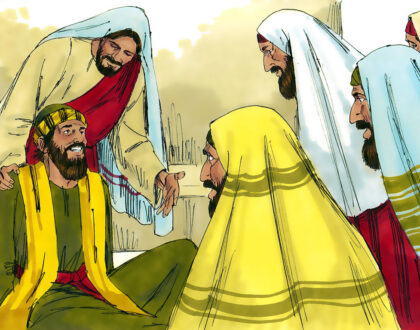
Not Bound By Limitations To Minister
June 10, 2024

